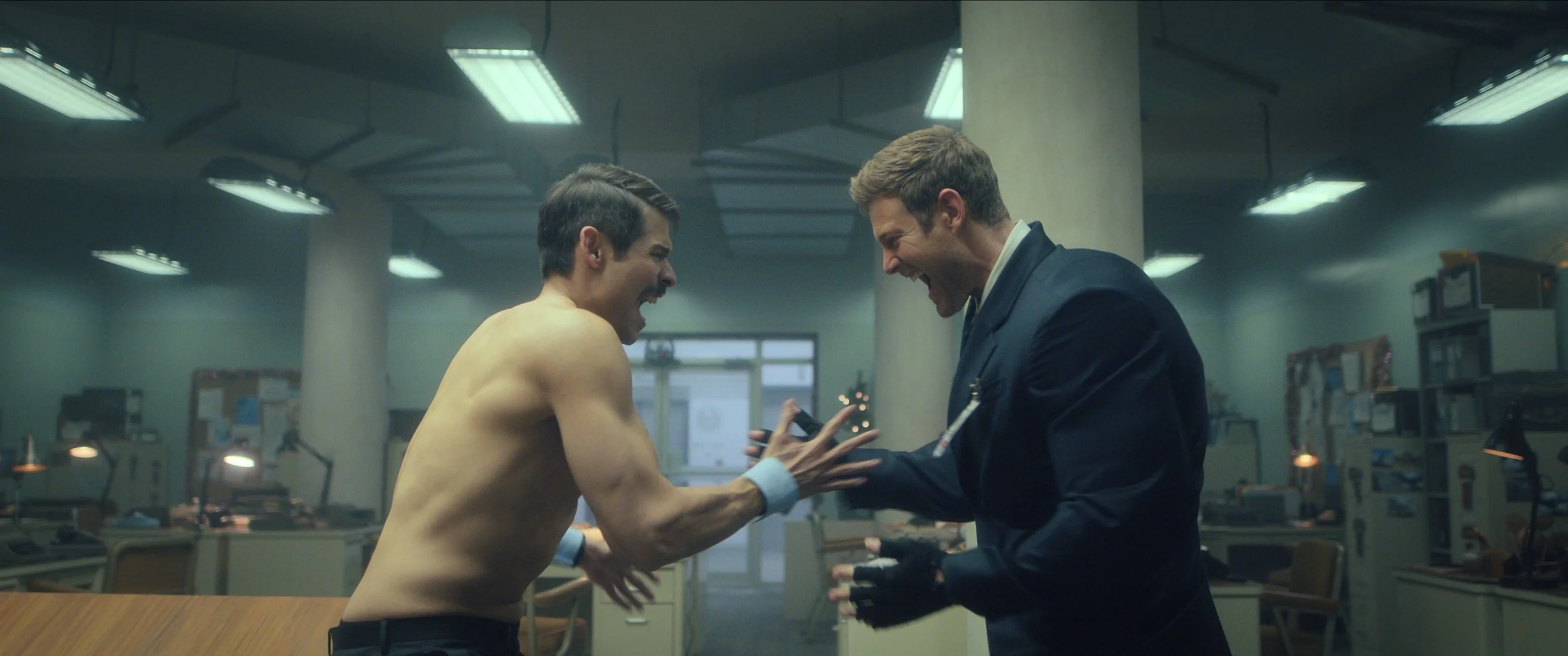Umbrella Academy S4: The Epic Fantasy Becomes Slapstick and Anticlimactic
By John Kirk
Rating: C-
When The Umbrella Academy first arrived, it had a larger-than-life sense of impending dread built on the ruins of a superhero family who were once great.
Based on the bestselling Dark Horse comic created by Gerard Way, the original premise of millionaire inventor Reginald Hargreeves adopting seven of 43 children spontaneously born on the same day was to save the world. It was mysterious, enigmatic, and truly fantastic.
The first two seasons of the Netflix show followed that basic idea and were a success. It kept secrets back, included foreshadowing, and had a loftier and elevated mood. While there were moments for comedy, these were included sparingly with an effective sense of timing.
The third season had somewhat of a sinister aspect with multiple timelines and even the appearance of the Sparrow Academy. Throughout it all was Colm Feore as Hargreeves, loaded with dramatic gravitas. The man has a gift for presenting fantastic characters that tease the imagination.
But Season Four is… sillier. In fact, this is the final season. And it ends disappointingly.
Picking up on the end of Season Three, and the disappearance of their powers to save the world again, the Hargreeves children have gone their separate ways, again. Supposedly for good this time and settled down into lives in the patchwork assembly of a timeline they exchanged their powers for. It’s more mundane, and sadly dull, which continues for the whole season.
Season Four starts off strangely. It’s like the Umbrellas are insistent on leaving each other, yet in this timeline there are those who remember bits of it. That becomes the impetus for a shadowy organization led by the rogue scientists Gene and Jean Thibedeau (Nick Offerman and Megan Mullally). Their aim is something that you’ll just have to see but their characters are ridiculously sinister, which sadly doesn’t last to the end of the season. A sad waste of character development.
Season Four has one gem: follow-through. In the case of the first season, we weren’t told anything about Vanya’s (Elliot Page) powers resulting in a building storyline that culminated with the end of the world averted by the familial bonds of the siblings holding their sister in check.
Basically, love kept them together. But that reveal was the reason why the first season was such an unmitigated success and why the audience wanted to see more, not less and certainly not different. For instance, some of the powers aren’t the same in some cases. See Alison (Emmy Raver-Lampman) as example for what I’m talking about.
Even the masterful Feore can’t save this season. Woefully underused (again) and given that his character was given four seasons to develop into the extremely entertaining one that we see in the comics, he fails to deliver on the implied promise of learning more about Hargreaves. Instead, all we get are more questions and that is the major part of what is wrong with show this time around.
Promises aren’t kept. The first three episodes start up the same way, with a foreboding sense of purpose and a loose attempt for the family to reunite, despite their separation, but it’s like they were so far separated that there is no way they can reunite. Given that this is essentially a superhero story, that’s a bit outside the formula.
What’s worse is that the Umbrellas act like rank amateurs. Each of their negative characteristics are grossly exaggerated. Klaus (Robert Sheehan) is the exception, but his epicurean tastes have disappeared and now he is overly cautious and at the beginning of the season, lacks the fun his character brought to the group. Luther (Tom Hopper) seems to take his place in partnership with Diego (David Castañeda) as they equally share the roles of comic relief.
There’s an emphasis on the comedic antics of the characters in this season that gets in the way of a good story. While comedy was always present in the previous seasons, there’s a heavier attempt at laughs in Season Four. Of course, this gets mired down by a sad but equal attempt at character drama that results in no growth. By the end of the sixth episode, it’s almost as if the writers were just hoping for it to end. The lesser number of episodes in this season compared to the others seems to support that notion.
Even the ending is anticlimactic. The Umbrella Academy, despite their differences, their flaws, and the buffoonery they are painted with in this season, are still heroes. They are deserving of a heroic end rather than the simple dull acceptance of the inevitable. Heroes never settle for the inevitable and this ending does a great disservice to the previous seasons that came before it.
In an interview I did with Feore after the first season, he seemed to suggest that Hargreeves (a.k.a. the Monocle, as he is known in the comic) would reveal more of himself, based on his classical actor’s background. Alas, this was not to be. We only get more slight hints about his background and again, we have another promise to the show’s fans that isn’t delivered.
I think a lot of fans felt there was a lot riding on this season for the show to end with a fantastic climax. Unhappily, this is the way the world ends. Not with a bang, but with a barely developed whisper.
Oh — and not from Alison.
The Umbrella Academy: Season Four. Starring Elliot Page, Tom Hopper, David Castañeda, Emmy Raver-Lampman, Robert Sheehan, Aidan Gallagher, Justin H. Min, Ritu Arya, and Colm Feore, Nick Offerman, Megan Mullally, and David Cross. Streaming on Netflix August 8.



